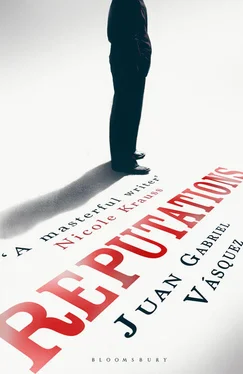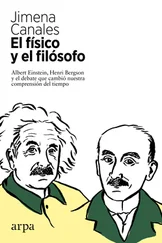Her name was Samanta Leal. During the cocktail party the previous evening in the bar of the Teatro Colón to toast Mallarino and his award, she had approached, one of dozens, to ask him to autograph a copy of his most recent book. She brought it over still sealed in the unpleasant plastic Colombian books come in, and which seems designed to discourage the reader and humiliate the author who, like Mallarino, tries to open it to write an inscription. Mallarino, his fingers wet from the condensation on his whisky glass, failed spectacularly at the task; when the interested party took the book in both hands and held it to her mouth and bit a corner of the plastic, Mallarino noticed the long fingers without any rings and then the parted lips and then the teeth that bit and then the whole mouth, which got into trouble with the bitten-off corner of plastic and tried to spit it out politely with comical movements of a very pink tongue (Mallarino thought: A little girl’s tongue). It must have been the emotion of the moment, but it all seemed so sensual to him, so concrete , that he focused especially on the young woman’s name as he wrote it. ‘For Samanta Leal,’ he said, pronouncing both the Ls carefully, as if to retain them, as if they were going to escape. ‘What do you want me to put?’ ‘I don’t know,’ she said, ‘put whatever you want.’ And he wrote: ‘For Samanta Leal, whatever you want.’ None of what would happen with Magdalena had begun yet — she had congratulated him affectionately, but then she’d sat down on a red velvet chair and was laughing her head off with a writer from the coast — and Mallarino felt free to fantasize about an attractive thirtysomething and to act on those fantasies. She read the inscription; instead of thanking him and taking her leave, she pursed her lips in a way that made Mallarino think of a freshly washed strawberry. ‘Well, what I want,’ Samanta Leal took him by surprise, ‘is an interview.’ She mumbled the name of the site, an ugly English word full of consonants; he said he knew nothing about blogs, that he didn’t like them and didn’t read them, and didn’t really trust them. If in spite of all that she was still interested, he would expect her at his house tomorrow, at three o’clock sharp, so she could get what she could in forty-five minutes and then leave him free to get back to work.
And now here was Samanta Leal. She was wearing green woollen tights, a grey skirt that didn’t reach her knees and a white blouse, as smooth as a Malevich canvas, its only adornment the change of tone where her bra began. The eyes that had been dark the previous night, beneath the soft lights of the bar, were now green, and they opened wide to scrutinize the walls with that mixture of enchantment and disappointment with which we observe the homes of those we admire. There was something impatient in her way of sitting down and crossing her legs, a certain restlessness, an uncomfortable electricity; and when she started asking random questions (How long had he lived in this house? Why had he decided to leave Bogotá?), Mallarino thought the same thing he’d thought before: that the interview was a pretext. Over time he’d learned to recognize the double intentions of those who approached him: the interview, the inscription, the brief conversation, they were just strategies suited to very different purposes: a job recommendation, the favour of leaving a particular politician alone, sex. He amused himself (but it was a dismayed amusement) by making private bets about Samanta Leal and the outcome of this visit, varying degrees of nudity or embarrassment. The young woman asked questions, and the disorder, the absence of method, was not the only feature that seemed duplicitous: in the calm of his house in the mountains the unusual music of Samanta Leal’s accent was more noticeable than it had been the night before. She looked at the walls and he looked at her looking, seeing his own house through those surprised eyes, discovering, at the same time as she discovered, Debora Arango’s toads wearing clothes, the Cuadro rojo by Santiago Cárdenas or an Ariza landscape, somewhere between Boyacá and Japan. He watched her and looked for emotion or surprise on her face, but saw none of that: Samanta Leal looked over the paintings as if seeing an absence, as if what she was really looking for was missing.
‘It was in 1982,’ said Mallarino. ‘I got tired of Bogotá, that’s all, I got tired of a lot of things. I bought this house and two dogs, two German shepherds, a male and a female, whose puppies are the ones I have now. The ones with stars on their foreheads, all identical. Of course not all of them: I kept two and sold the rest, they eat as much as twenty people and mine are as big as horses, I don’t know if you saw them.’ Samanta Leal said yes, she’d seen them and they’d scared her a little, to tell the truth. ‘No, they’re not scary,’ said Mallarino. ‘Don’t put this in the interview, but my dogs are the most cowardly creatures on earth: they’re no good at guarding anything.’
And Samanta: ‘I won’t. I promise. 1982, you said?’
And Mallarino: ‘Yes, that’s right. 1982, around the middle of the year. It’s cold, but I like the cold. The plateau begins near here, you know. A little bit higher up the mountain and there it starts.’
Samanta had taken three things out of her aquamarine handbag: a dull aluminium lighter, a pocket notebook and a pen the same colour as the handbag. She set the lighter on the table, and Mallarino realized it wasn’t a lighter but a tiny digital recorder. He made some comment about it — ‘In my day people just took notes,’ perhaps, or perhaps ‘Journalists don’t trust their own memories any more’ — and Samanta asked him how he got along with the new technologies, if he had become accustomed to using digital aids. ‘Never,’ said Mallarino. ‘I don’t like them. I don’t even make digital corrections, which is something many do. I don’t. I draw by hand, and what comes out is what goes out. Digital technologies make everything boring, predictable, monotonous. One can get bored with this trade, señorita, and you have to invent tricks so that doesn’t happen. For example, I sometimes challenge myself to draw an entire cartoon without lifting my hand off the paper, or drawing in the background, behind the main scene, a miniature reproduction of a masterpiece. People don’t stop to wonder why behind Chávez there might be a Rembrandt or a Rafael. . So, no, don’t ask me about technology. It’s not for me.’
‘And for sending them?’
‘What about sending them?’
‘Don’t you use a computer?’
‘I don’t have a computer. I don’t use the internet, I don’t have email. Didn’t you know? I’m famous for that: absurdly famous, if you want my opinion. I don’t know what’s so strange about this. I have six or seven magazine subscriptions in three languages: tons of paper that I never finish reading. With that and the television I have enough to keep me informed. I have cable, it’s true, I have more news channels than I need, and I can even press pause to see someone’s face better.’
‘But then how do you send them? How do you send the cartoons?’
‘At first I used to take them in personally, of course. Then I started to use a fax machine, I used it for years. I still use it to communicate with people. That machine is my personal mail: if you want to write to me, you can do so by fax, and I’ll answer you by fax. It’s quite simple. But I used to use it to send in my cartoons. It didn’t work. It broke up my lines, you know? Worried friends used to call: “Are you ill? Is something wrong? Your lines aren’t steady.” That’s when they started to pick them up.’
‘Who?’
‘The newspaper sends a courier. They’ve always had a courier driving around the city picking up and dropping off papers, it’s called La Chiva. And when they come to collect my drawing, they call it La Chiva de Mallarino.’
Читать дальше












